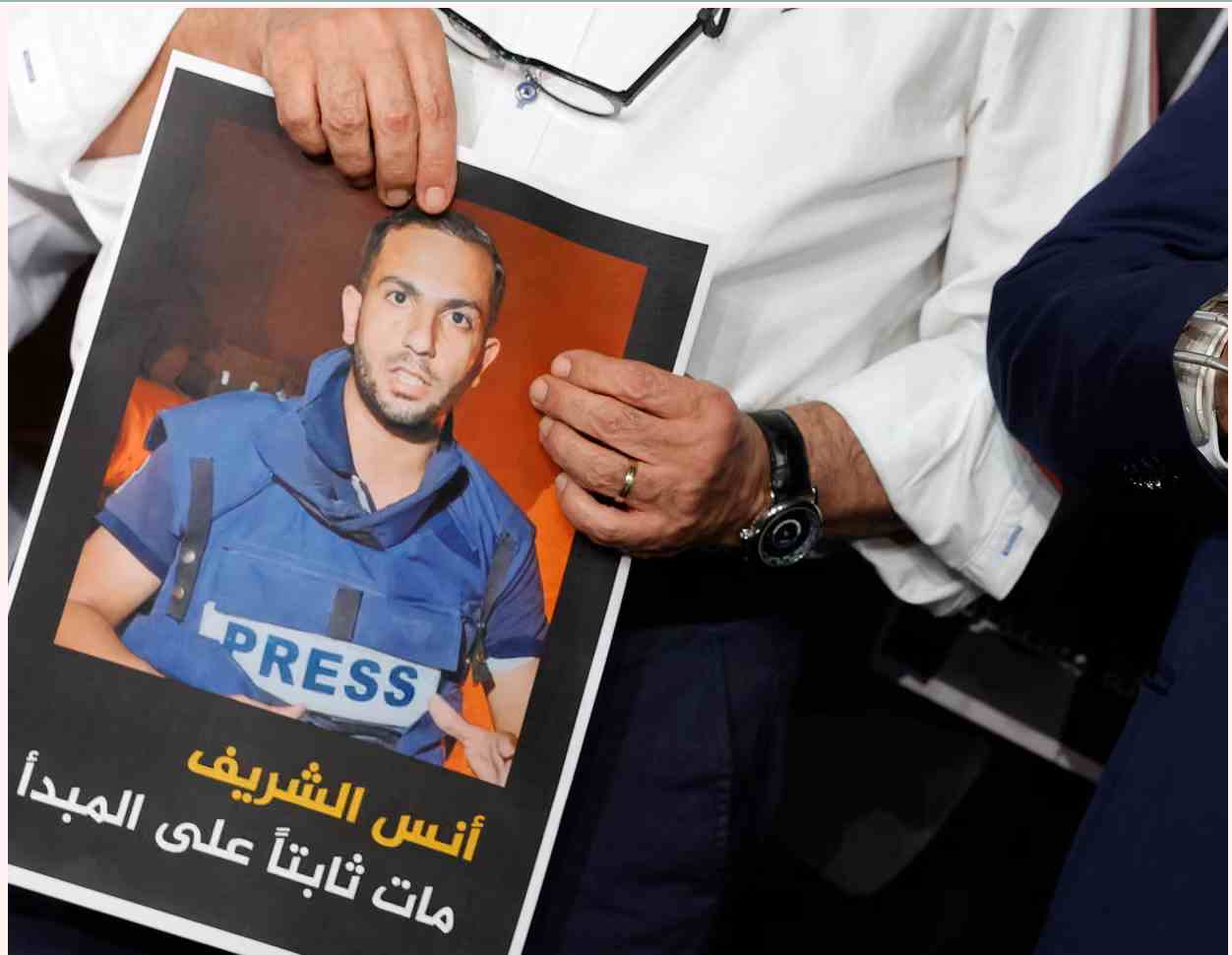
Dead Palestinian reporters, banned international reporters – the other Israeli war in Gaza was narrative. Press members and influencers who cover the devastation are being silenced, despite the protection offered by International Law
Israel is conducting two campaigns in Gaza: one for the military control of the track; another for the narrative control of how the world understands what happens there.
In theory, Palestinian journalists, and social media influencers who document hunger, massacres and other Israeli war crimes in Gaza are civilians protected by international law.
But these paper protections meant little in Gaza, by far the most dangerous place in the world to be a reporter, where more than 180 Palestinian journalists were killed in 22 months of war, according to the journalist protection committee.
Although it is illegal to attack journalists, the CPJ stated that in the same period 26 reporters were victims of selective murders, which he described as murders. The most recent was the 28-year-old Al Jazeera, 28-year-old Al Jazeera, killed on Sunday in his makeshift newsroom in front of a hospital, along with four colleagues.
Liberty groups and journalists say these murders are part of an intimidation campaign to interrupt vital reports, which Israel justified internationally with defamation and false allegations that the targets were fighters disguised from Hamas.
With international reporters prevented from making independent reports in Gaza – some have been allowed to enter Israeli military escort, but are not allowed to move freely or talk to Palestinians – the work done by journalists in Gaza is essential.
“I have no doubt that the prevention of international access, the murders of journalists, the attacks on media facilities and the punishment of communication vehicles [israelenses] As Haaretz are part of a deliberate Strategy of Israel to hide what is happening inside Gaza, ”said CPJ executive chief Jodie Ginsberg.
She highlighted a recent incident when a BBC team reported a Jordanian military plane launching humanitarian aid in Gaza, but was prevented by Israel from filming the devastation below.
“We had the example of international news teams that were authorized to film the air releases, but not devastation when the doors opened.”
In July, Sharif, one of the most prominent journalists still working in Gaza, viralized on social networks by uncontrollably by covering hunger in the air. Passers -by encouraged him to continue, for he gave voice to Gaza.
Shortly thereafter, an Israeli military spokesman revived the allegations-first aired in 2024-that he was a militant, including accusing him of pretending mass hunger in a “false Hamas on Hunger Campaign.”
The CPJ issued a severe warning that these Israeli allegations were a threat of death.
“These last unfounded accusations represent an attempt to manufacture consent to kill Sharif,” said Sara Qudah, regional director of the CPJ at the time. “This is not the first time Sharif has been the target of the Israeli army, but the danger to his life is now serious.”
Sharif also predicted her own death and described her as retaliation for her reports in a statement released on social networks. “If these words come to you, know that Israel managed to kill me and silence my voice,” he wrote.
Israel published a dossier of documents that, according to him, were recovered in Gaza and connecting Sharif to Hamas. They end in 2021, two years before the war began, and do not even try to address their regular live appearances in front of the cameras.
The role of one of the most prominent journalists in one of Earth’s most watched places would be extremely difficult to reconcile with the command of a Hamas unit during a total war.
Documents published by Israel after the murder of another al Jazeera journalist last year state that Ismail al-GHOoul received a military patent when he was 10 years old.
Although they gathered contradictory and unconvincing evidence, the existence of these files reflected Israeli concerns about the pressure of Western allies and the need to at least appearance with compliance with international law.
Despite the international pressure, Israel offered no explanation for the deaths of the four protected civilians of Sharif, killed in their workplace. Ginsberg said fear that this was a warning that already unimaginable risks had gotten worse.
“What amazes me is that they didn’t even try to justify the other murders,” she said. “So they are admitting to murdering those journalists, knowing they were journalists.
“I believe this has the deliberate intention to have a deterrent effect to show that Israel can do whatever they want and that no one will take any attitude.
If we now come to a point where Israel can so blatantly attack a whole report, what does this mean for the safety of other journalists who work there? Who will be next?
French historian Jean-Pierre Filiu, who received a rare permission to enter Gaza for academic research during the conflict, said that a month researching there also convinced him that Israel is trying to silence Gaza’s reports.
“Now I understand why Israel is denying the international press access to such a terrible scene,” he said in an interview with Haaretz after the trip.
“Although I have been in various areas of war in the past, from Ukraine to Afghanistan, passing through Syria, Iraq and Somalia, never, but never, I experienced something similar.”
Originally published by The Guardian on 08/11/2025
By Emma Graham-Harrison in Jerusalem
Source: https://www.ocafezinho.com/2025/08/13/a-guerra-que-israel-nao-quer-que-voce-veja/

